Deconstructing ECFA:Challenges and Opportunities for Taiwan
top Taiwan is located where the world’s largest continent and its vastest ocean meet. It is surrounded by great powers such as China, Japan, Russia and the United States, while Indonesia, Malaysia, the Philippines, South Korea, Vietnam and other close neighbors are middle powers. We can say that the importance of Taiwan’s strategic position at the geographic crossroads of Northeast Asia and Southeast Asia is without parallel. Even more important, Taiwan has created an economic miracle over the past century. Before the Second World War Taiwan’s per capital national income stood at around 80 percent of Japan’s national income, which made it No. 2 in Asia in terms of economic development. After the war, from the 1970s, the Taiwanese economy entered a period of rapid growth, and has counted among the world’s top 20 economies ever since. During the past three decades Taiwan has considerably contributed to the economic development of Southeast Asia and China. In China’s case in particular Taiwanese investment has outright acted as an engine for the Chinese economy. From the 1980s Taiwanese businesspeople began to invest in China, unconditionally transferring capital, technology, and specialists to China. Particularly after the 1989 Tian’anmen Incident, when the Chinese ecomony ground to a halt as countries around the globe slapped China with political and economic sanctions, Taiwanese capital and personnel provided timely help. As a result the dying Chinese economy was revived and China was able to become the world’s conventional industry kingdom. During the past thirty years the volume of trade between Taiwan and China has dramatically increased, almost 2,900-fold, from US$500 million in 1978 to US$145 billion in 2010. Later on when China was eager to develop its high-tech industry, Taiwan permitted, again at the right time, manufacturers of more than 7,000 items including notebook computers and other electronics to invest in China. Between 2001 and 2007 virtually all computer manufacturers from Taiwan moved their production lines to China, helping China to quickly become the world’s factory in the information industry sector. Since products made by China-based Taiwanese companies contribute to Chinese exports, China was able to quickly accumulate foreign currency assets so that its foreign reserves hit US$2.4 trillion in 2010. China is currently planning its third big leap forward, namely industrial and technological upgrading. To achieve that goal Beijing is eager to import technology-intensive industries and a modern biotech industry. Right at this time China needs a third batch of Taiwanese investment and technology to overcome its problems with industrial upgrading. That’s the reason why China and China-centric pressure groups were promoting the conclusion of an Economic Cooperation Framework Agreement (ECFA) between Taiwan and China so actively. After the Second World War the victorious and the defeated nations were all saddled with severe destruction. Especially the totalitarian countries failed to make progress with China stagnating even longer for almost 40 years so that among the large nations China had the most backward economy. Subsequently, Taiwan kept providing China with capital and technology for nearly 20 years and even took its own customers (markets) from around the world to China. But while Taiwan contributed to the development of the Chinese economy, Taiwan itself suffered a massive outflow of capital and technology. As a result the Taiwanese economy took a heavy blow from a severe stock market weakness, an increase in bad bank loans, the emergence of a fiscal deficit, and unemployment soaring to a historic high. Against this backdrop, the ruling Chinese Nationalist Party (KMT) government in Taiwan encountered the onslaught from the global financial crisis, which again caused negative economic growth. As Taiwan’s economic growth rate saw a single quarter contraction of almost 10 percent in 2008, the government willingly signed ECFA with China at the risk of self belittlement and even ceding sovereignty. This has not only created concern that Taiwan’s commerce and trade are overdependent on China, it has also made it easier for hot money to enter Taiwan for speculation, creating an economic bubble and, as its greatest impact, widening the gap between the rich and the poor. As an export-oriented nation Taiwan heavily relies on international markets. Now that these markets are on the rebound Taiwan stands a chance of resuming its growth momentum. But now that ECFA has gone into effect, Taiwan’s originally worldwide operating economy is rapidly moving closer to China and is even at high danger of being completely locked into the Chinese politico-economic system. ECFA has accelerated the exodus of Taiwanese companies to China and is creating a magnetic effect that pulls the small Taiwanese economy toward the large Chinese economy. As ECFA took effect, a number of problems began to crop up for Taiwan such as shrinking exports, worsening labor conditions, and contracting domestic demand. Virtually without any reservations Taiwan is also giving away to China top managers and key technologies of the semiconductor, packaging, TFT-LCD panel and other industries that it painstakingly cultivated over the past decades. In recent years China’s economic power has quickly developed on the back of Taiwanese talent, capital and technology. Consequently China’s national power has also markedly increased. Yet the whole world presently harbors great doubts that China will actually “rise peacefully” as it claims. And recently a string of economic disputes between China and other countries over unbalanced bilateral trade or even discord resulting from territorial disputes have shown again and again that China is rising as a hegemonic power. This creates enormous pressure in the military, political and economic spheres for countries around the globe and constitutes a severe threat to East Asia in particular. On the whole Taiwanese businesses have been supporting China’s economic development, technological progress and private sector employment by taking their capital, technologies and markets there. China, however, still continues to threaten Taiwan with military force and even coerced Taiwan into signing ECFA as it intends to annex Taiwan by using business to exert pressure on the government. Moreover, the hardline stance that China took recently with regard to its territorial claims over the Diaoyutai Islands and in the South China Sea should give the governments of Japan, South Korea, Taiwan, and the United States serious food for thought. Therefore Taiwan Brain Trust has published Deconstructing ECFA:Challenges and Opportunities for Taiwan, a collection of in-depth analyses by renowned scholars on the side effects and long-term aftermath of ECFA. We hope this book will debunk the Ma government’s erroneous myth that China is the one and only option for the Taiwanese economy, while also further exploring the course that Taiwan’s destiny might take under the current international political and economic scenario. I would like to express my deepest gratitude to my fellow researchers at Taiwan Brain Trust and the other authors without whose wisdom, hard work and dedication this book would not have been completed.作者簡介Sorting Alphabetically Chi-Chung Chen is currently a Professor of Department of Applied Economics at National Chung Hsing University. He received his Ph.D. in Agricultural Economic, Texas A&M University. His research interests include Economic Analysis of Climate Change and Food Security, Resources and Environmental Economics, International Trade and the Applied Analysis for Agricultural Department Models. He has participated in several research projects in National Science Council, such as the impact of the Climate Change on Food Security and the Economic Analysis of El Nino on the Water Resources. Ming-tong Chen is currently a Professor of Graduate Institute of National Development at National Taiwan University and was a former minister of Mainland Affairs Council, the Executive Yuan. He received his Ph.D. in Political Science from National Taiwan University. His research interests include Political Culture, Political Development, China Studies, Taiwan’s Current Policy toward the China, and Act Governing Relations between Peoples of the Taiwan Area and the Mainland Area. Pochih Chen is currently the Chairman of Taiwan Thinktank and Professor Emeritus of the Department of Economics at National Taiwan University. And he was a former Counselor for National Policy at the Office of the President of the Republic of China, Economic Counselor for the President, Minister of the Council for Economic Planning and Development, Executive Yuan, Board Director of Central Bank of the Republic of China, and Director of the Department of Economics at National Taiwan University. His works include “Taiwan Economic Strategy: From Hu Wei to Globalization”, “Re-innovation Strategies for Cross Strait Trade”, “The Substitution Relationship among the Exports of East Asia Countries”. Tsai-Lung (Honigmann) Hong is an Assistant Professor (adjunct) of China Study Program at National Tsing Hua University, and guest researcher for New Frontier Foundation. He received his Ph.D. degree in Economics from Innsbruck University, Innsbruck, Austria (2001). He received a scholarship of Interchange Association (Japan) as a Visiting Research Fellow by IDE/JETRO(2005)and served as advisor for Mainland Affairs Council, Executive Yuan, Republic of China (Taiwan) during 2007-2008. His expertise focuses on International Economics, Regional Economic Integration, especially Asia-Pacific Economic Cooperation (APEC) and Free Trade Agreements (FTAs)/Regional Trade Agreements (RTAs) issues, and Cross-Strait Economic and Trade Relations Chung-Hsin Hsu is currently a Professor at the Department of Law of National Cheng Kung University. He received his Ph.D. in Law from University of Cambridge. And his research interests include Intellectual Property Rights Law, International Trade Law, and Financial Law. Bor-Yi Huang received his Ph.D. in Economics from National Chung Hsing University and is currently a Professor at the Department of Finance and Banking and the Executive Officer of the Financial Development Research Center of Shih Chien University. Professor Hwang is also a Counselor for National Security Council. His research interests include Banking Management, Financial Market, Industrial Economics, and System Economy. His recent researches have been published at Journal of Developing Areas, Journal for SME Development, and Taiwan Banking & Finance Quarterly. Tien-Lin Huang is graduated from the Department of Economics of National Taiwan University and studied at Business School of Columbia University. He was a former National Policy Advisor at Office of President, Republic of China, President of Taiwan Academy of Banking and Finance, Counselor of National Security Council, President of Taiwan Cooperative Bank and Chairman of First Commercial Bank. I-Ju Tsai is currently an Assistant Professor of the Department of Finance at National United University. She received her Ph.D on Economics from National Taiwan University. Professor Tsai has participated in several projects in National Science Council, such as household precautionary saving in Taiwan and the transition of household consumption before and after 1990 in Taiwan. Her research interest is on New Economic Geography. To-far Wang is currently the Chairman of the Institute for National Development and a Professor and Department Head of the Department of Economics at National Taipei University. He is also an Advisor of the Taiwan Brain Trust as well as the Taiwan Institute of Economic Research. His research interests include input-output analysis, economic policy and economic development, energy and environmental economics, and economic relationship between Taiwan and China. Dr. Wang received his Ph.D in Economics from University of California at Santa Barbara in 1983. Chih-Chung Wu is an Associate Professor at the Department of Political Science at Taiwan Soochow University, Director of the European Union Study Center of the Department of Political Science at Taiwan Soochow University, Secretary General of Taiwan European Union Study Association, member of Executive Committee of Taiwan Thinktank, President of Alliance franiaise de Taiwan. He received his Ph.D. in Political Science from University Paris I, Panthion-Sorbonne, under a scholarship granted by the Ministry of Foreign Affairs of the French Government. Prior to joining Taiwan Soochow University, he was a Visiting Associate conducting East Asian research for the Fairbank Center of Harvard University, Visiting Professor of the l’Institut d’Etudes Politiques de Lyon, France, Visitor Leader of International Visitor Leadership Program, U.S. Department of State, and Deputy Director of the Department of Planning at the Institute for National Policy Research. His research interests include geopolitics, foreign policy, French government and politics, regionalism, European study, relations between Taiwan and China, Taiwanese government and politics. Apart from his profession in the academic arena, he is also enthusiastic about public affairs. Furthermore, he speaks various kinds of languages such as Mandarin, French, English and Taiwanese. Rong-I Wu is the Vice Chairman of the Taiwan Brain Trust, the Chairman of the Taiwan-Russia Association, the Board member of Taiwan Thinktank, and senior adviser of the Taiwan Institute of Economic Research. In the past, Dr. Wu was the Vice Premier of the Executive Yuan, Chairman of Taiwan Stock Exchange, and Chairman of Taiwan Futures Exchange, President of the Taiwan Institute of Economic Research, Chairman and Professor of the Department of Economics of National Taipei University. Dr. Wu received his PhD in Economics in 1971 from the Catholic University of Louvain, Belgium. Chih-Hai Yang received his Ph.D. in Industrial Economics from National Central University and is currently a Professor of Department of Economics at National Central University. He was a Visiting Research Fellow for International Centre for Studies of East Asian Development(國際東□□□研究□□□□) and has been the Project host for several projects of National Science Council. His research interests include Economics of Innovation, International Economics, and Applied Econometrics. And his researches have been published on Tourism Management, Agricultural Economics, Journal of International Trade and Economic Development, Taiwan Economic Review, Japanese Economic Review, and Pacific Economic Review.
特價現省:30

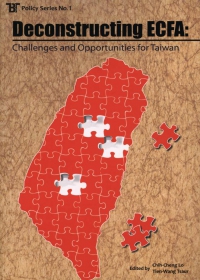
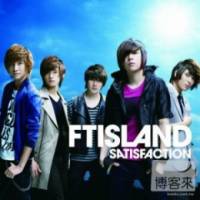

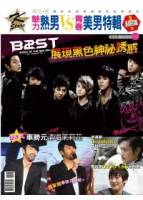
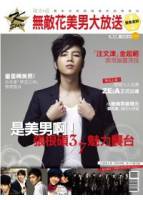



![[攝影小教室] 到日本買二手相機與鏡頭吧!台日價差讓你坐飛機去買都還有剩呢!](https://www.iarticlesnet.com/pub/img/article/68461/1421940040935_s.jpg)















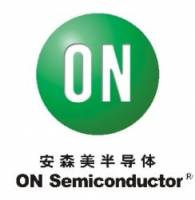

![[蘋果急診室] Mac 電腦入門特輯:檔案管理大不同!(二)成爲 Finder 大師!](https://www.iarticlesnet.com/pub/img/article/69732/1437625248255_xs.jpg)

